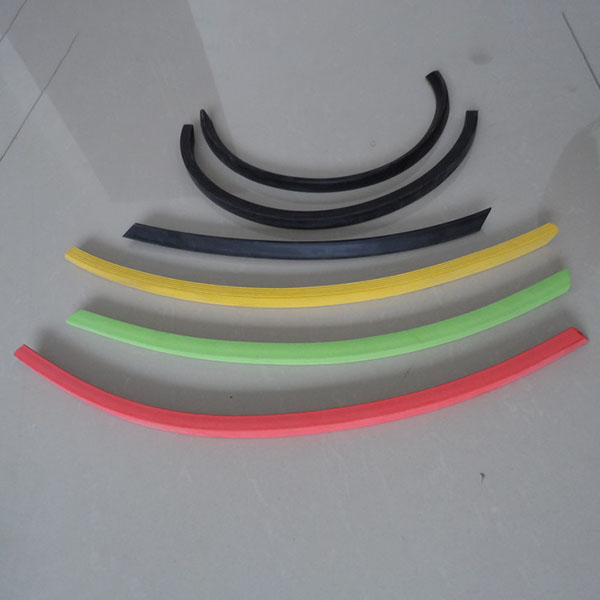Oct . 19, 2024 05:46 Back to list
Seal Leakage Testing Solutions for Spin-On Filters in the Automotive Industry
Understanding the PLJL-4% Seal Leakage Tester for Spin-On Filters
In the realm of automotive and industrial applications, the reliability of components such as spin-on filters is paramount. Spin-on filters are widely used in oil and fuel systems, providing essential filtration to ensure engine integrity and performance. However, the effectiveness of these filters largely depends on their ability to maintain a proper seal, preventing any leakage that could compromise system functionality. To address this critical concern, manufacturers and quality control engineers utilize the PLJL-4% seal leakage tester.
What Is the PLJL-4% Seal Leakage Tester?
The PLJL-4% seal leakage tester is an advanced testing device designed to evaluate the integrity of seals in spin-on filters. This specialized apparatus ensures that filters are produced to the highest standards by assessing their leakage rates under specified conditions. The name PLJL-4% indicates its capability to detect and measure leakage levels down to a precise 4% threshold, making it a valuable tool in quality assurance processes.
Importance of Seal Integrity in Spin-On Filters
The primary function of a spin-on filter is to remove contaminants from fluids, whether it be oil in an engine or fuel. A well-sealed filter guarantees that no unfiltered fluid bypasses the filtration media. If a filter fails to seal correctly, it can lead to significant issues such as reduced filtration efficiency, increased engine wear, and ultimately premature system failure. Therefore, thorough testing of these seals is crucial in maintaining the reliability and performance of automotive and industrial systems.
How the PLJL-4% Tester Works
The PLJL-4% tester operates through a systematic approach. It immerses the spin-on filter in a controlled environment, where pressure is applied to check for leaks. The tester measures any leakage that occurs, recording values that indicate the performance of the filter's sealing mechanism. The precision of the PLJL-4% means that manufacturers can detect even minute leaks that could lead to bigger problems down the line.
The simplicity of the PLJL-4% design allows for easy integration into production lines. Its operation is user-friendly, enabling technicians to conduct tests efficiently and with minimal training. This ease of use ensures that the testing process does not bottleneck production, allowing manufacturers to maintain high throughput while ensuring quality.
pljl-4 seal leakage tester for spin-on filter companies

Benefits for Companies
For companies that manufacture spin-on filters, the use of the PLJL-4% seal leakage tester offers several advantages
1. Quality Assurance The ability to reliably test seal integrity means that only high-quality filters make it to market, reducing the risk of field failures and enhancing brand reputation.
2. Cost Savings By identifying defective filters early in the production process, companies can minimize waste associated with returns and repairs, leading to significant cost savings.
3. Compliance and Standards Many industries have strict regulatory standards regarding component safety and performance. The PLJL-4% tester helps ensure compliance with these standards, reducing legal and financial risks.
4. Customer Satisfaction Ensuring reliable and effective spin-on filters translates into satisfied customers, leading to repeat business and positive word-of-mouth.
Conclusion
In conclusion, the PLJL-4% seal leakage tester is an invaluable asset for companies involved in the production of spin-on filters. By guaranteeing seal integrity, this testing device helps manufacturers uphold quality, ensure compliance with industry standards, achieve cost efficiencies, and ultimately deliver reliable products to customers. As the demand for high-performance components continues to grow, investments in technologies such as the PLJL-4% seal leakage tester become essential for maintaining competitiveness in the marketplace. In a world where automotive and industrial systems depend heavily on efficiency and reliability, such testing solutions represent a step towards achieving excellence in manufacturing.
-
Active Carbon Air Filter for Air Purifier – High Efficiency Filtration Solution
NewsJul.22,2025
-
Durable Sintered Porous Metal Filter Tube Cup & Machines
NewsJul.22,2025
-
Effective Active Carbon Air Filter for Purifiers | Eliminate Odors
NewsJul.21,2025
-
PLJT-250-25 Full-auto Turntable Clipping Machine | Efficient Automation
NewsJul.20,2025
-
Cheap PLJY109-500 Full-Auto HDAF Expanded Mesh Spiral Coiling Machine - High Efficiency & Quality Manufacturer
NewsJul.08,2025
-
Best PLHJ-6 Full-Auto Eco Filter Rotary Heat Plating Machine - High Efficiency & Eco-Friendly Solution
NewsJul.08,2025
